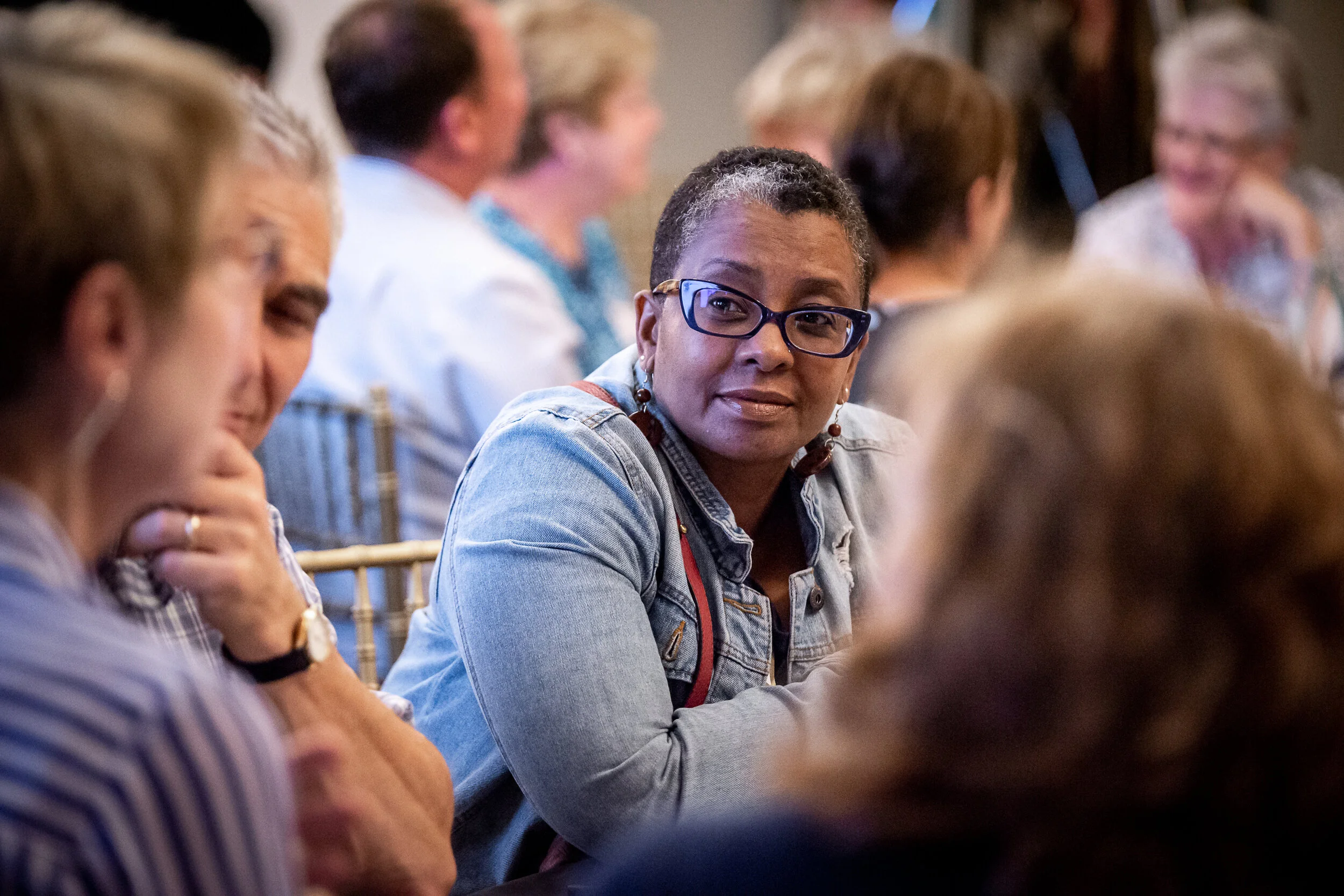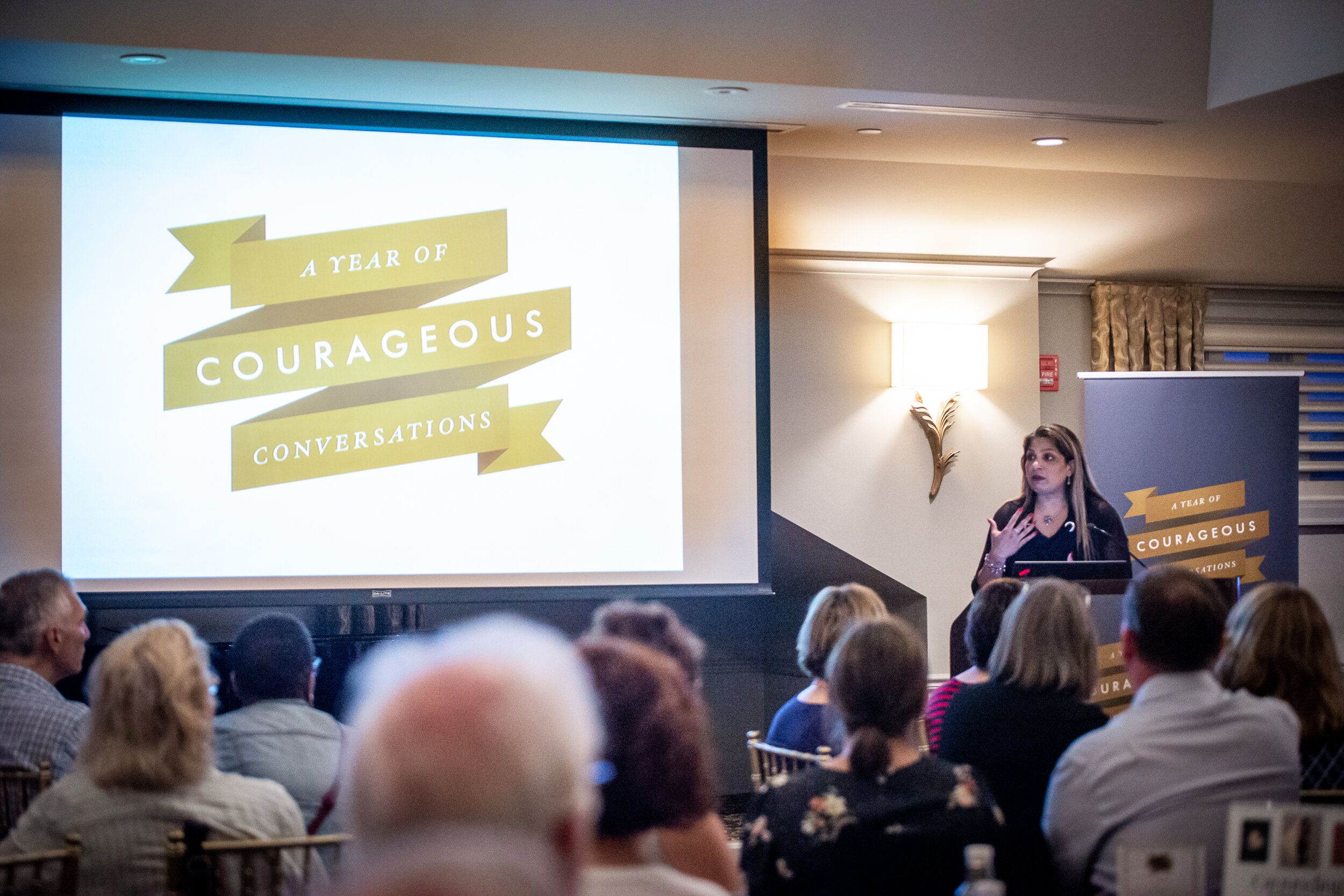BY STEPHANIE J. GATES, FELLOW
This year has proven to be more than any of us imagined. It began with a bang. We were gathered in Barrington’s White House making small talk when the tornado siren went off sending us into the basement for shelter. A pandemic hurled us into the virtual space. And then white vigilantes murdered Ahmaud Arbery. The police murdered Breonna Taylor and George Floyd. And Amy Cooper wielded the weapon of white womanhood against Christian Cooper when she called the police and said an African American man was threatening her — a move that could have cost Christian his life.
A pandemic. Vigilante and state sanctioned violence. False accusations. It all became too much and the people said “Enough!” People poured into the streets peacefully protesting injustice. Rioting and looting followed egged on by agitators and provocateurs. Many people were appalled by the lawlessness of the rioters and looters forgetting that it was the lawlessness of the police that set the world on fire in the first place.
And yet, we stayed the course and continued to grapple with and try to make sense of what was happening as we tried to process what equity looks like, sounds like and feels like with the hopes of creating a new playing field.
A thought-provoking year of courageous conversations came to an end paving the way for new beginnings.
It has definitely been a year of courageous moments for me because I am a Scary Mary. But as I reflect on events in my life including the fellowship, I can confidently say that I’m not the fraidy cat I think I am — sometimes. Being directionally challenged, my first hurdle was journeying to and from Barrington. Then I had to find my place in an unknown space.
Like many of you, I also live in a segregated world. My family is Black with the exception of my bi racial (half Black, half Japanese) sister-in-law. Most of my friends are Black, and I teach in a school that is African-American and Latinx. I know white people personally from social justice and equity work, but not intimately. So, I knew that if I didn’t want white people to see me — see Us — as one in the same, then I had to do the work to see you — as you. And not as white people.
And so I committed to 10 months of listening and learning beside you. I shared stories of what it’s like to be a Black woman in America. And it felt like I was leaving you with an incomplete picture of who I am. This is common for those of us who live outside of what’s normalized as acceptable. We become that Thing(s) that sets us apart from the group. Even as we move from margin to center, we are still judged by the marginalized identities of race, gender, sexuality, ability etc.
So, my final post as a Courageous Conversation Fellow is to introduce myself to you. My name is Stephanie. I am the daughter of Raymond and Mattie Gates both of whom left the South as part of the Great Migration — my father from Mississippi and my mother from Georgia. I know very little about my Southern roots. I was born and raised in Chicago. We first lived on the segregated West Side, and then like the Jeffersons, we moved on up to the integrated — sort of — South Side. We had white neighbors, and during the summer months the children played together outside. But we never ventured inside of each other’s homes.
Looking back, I experienced racism as a child, and I have also experienced it as an adult. So, while race shapes my life, it does not define it. I was a loved child. A spoiled child. I had everything I needed, and a lot of what I wanted. I took piano lessons and dance class. We went on family vacations. The youngest of seven, one of my favorite childhood memories is me and my niece sitting atop the mailboxes while my brother and his friends serenaded us with the sounds of Motown.
For many years, I studied belly dance and was a member of a belly dance troupe. We performed in and around Chicago and at venues in other states. How’s that for someone with stage fright? When I was 43, I met a woman who (has since become one of my dearest friends) talked me into joining a women of color triathlon training group. Though I enjoyed swimming in high school, I developed a fear of the water as an adult. At my first race, I was part of a relay team. Someone did the swim, and I did the bike and the run. It was a wonderful way to get introduced to the sport. While waiting for my swimmer to come in, I saw people lift a woman out of the water and place her in a wheelchair. My heart stopped. At that moment, I promised that I’d work on my swim so that I could complete all three legs of the next race. I did. I still need to work on my swimming though.
I’m not here to share my life story, just snippets to give you a fuller picture of who I am. I am the only one of my siblings who did not marry and have children. I am an aunt, great aunt, godmother and influence to many over the years in my work as an educator. I want you to see me in my humanity, and not just the parts of my life that are affected by race. I want you to understand that my Blackness is brilliant. My Blackness is beautiful; it’s racism that’s ugly.
I came to Barrington to do my part to change the world. My parents wanted better for me, and they worked hard to give me a good life. I want better for the children in my life. Navigating racism is par for the course. And that is not to negate the impact of racial discrimination, but to say that I’m good; really good. I have a loving family, great friends and work that allows me to touch the future. If you remember something I said or did that makes you see the world differently, then my mission was accomplished. I made connections that I hope will extend beyond our time together as Fellows.
So long for now. . . but not goodbye.
____
Stephanie J. Gates is a Fellow of A Year of Courageous Conversations to explore how to foster greater inclusion and belonging in our communities. The series is presented by Urban Consulate at Barrington’s White House in Barrington, Illinois. To read more, visit CourageousConversations.us.
(Photo Credit: Linda M. Barrett)

















